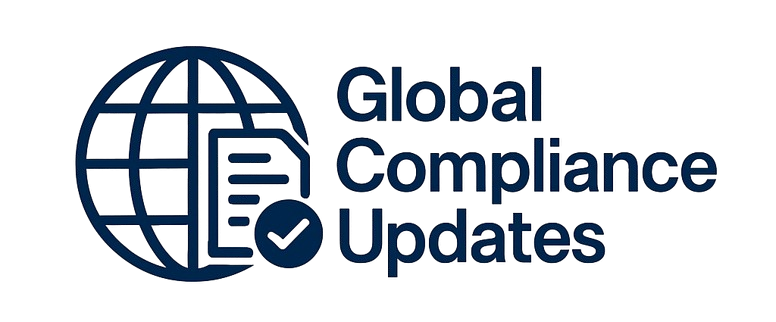Eighteen states and the District of Columbia now require employers to provide paid sick leave to their employees. In addition, 27 municipalities require employees to receive paid sick leave. A number of states are considering passing laws soon. In fact, Illinois and Minnesota just passed a mandatory paid sick leave law that will go into effect on January 1, 2024, and California increased the minimum number of days of sick leave required from 24 hours per year to 40 hours. A Federal Law requiring paid sick leave seems to be getting closer to becoming a reality.
Do you have a Federal Contract? If so, you are required to provide paid sick leave to your employees.
Do you have a contract with a municipality? If so, have you checked the fine print to see if the contract requires you to offer paid sick leave to your employees?
Every Law is Different
One thing to know is that every state and municipal law requiring mandatory paid sick leave is different. Trying to comply with all of them is causing much confusion. For example, Vermont requires paid sick leave to be offered after one year of service while others require it after 90 or 120 days. New York and Colorado require sick leave to be paid as it accrues. Most require you to offer paid sick leave to part-time employees. Others require it of all employees – even those who work on an on-call basis.
Is Your PTO Plan Obsolete?
PTO or a Paid Time Off program that combined vacation and sick leave into one bucket of time off was the trend for many years. With the passage of these laws, many organizations are doing away with their PTO as many states require payment of unused PTO upon termination. However, the same states do not require payment of unused sick leave. Organizations can maintain their PTO Plans, but at what cost?
In this webinar, we will be reviewing mandatory paid sick leave laws in place now, review many of the differences and go over how to transition from a Sick/Vacation policy to a PTO policy as well as making the transition from a PTO plan to a Sick/Vacation plan.
WHY SHOULD YOU ATTEND?
- With the above-described legislation, changes must be made to time-off policies.
- Multi-State employers need to know what the compliance requirements are – by the way, each state and municipality have different rules for accrual of sick leave, the reasons they can be used, and recordkeeping.
- Under mandatory paid sick leave, abuse will become a huge problem – how will your organization deal with it?
AREA COVERED
- Current Mandatory Paid Sick Leave Laws are in place.
- A review of pending legislation.
- An overview of Mandatory Paid Leave Regulations
- A comparison of PTO policies vs. Sick/Vacation
- Conducting a cost-benefit analysis for both plans
- Planning for change
- Communication the change
- Action Items for participants
LEARNING OBJECTIVES
- Gaining an understanding of the various states and municipalities mandating paid sick leave
- Understanding the good points and not-so-good points about different types of paid leave
- Learning how to do a cost-benefit analysis on both types of paid leave
- Learn what to look for when planning the change
- Effectively communicating change that is critical to the success of the change in your program
- Developing a plan of action to ensure all bases are covered.
WHO WILL BENEFIT?
- Human Resources Professionals
- Payroll administrators
- Benefits Professionals
- Business Managers
- Business Owners
- With the above-described legislation, changes must be made to time-off policies.
- Multi-State employers need to know what the compliance requirements are – by the way, each state and municipality have different rules for accrual of sick leave, the reasons they can be used, and recordkeeping.
- Under mandatory paid sick leave, abuse will become a huge problem – how will your organization deal with it?
- Current Mandatory Paid Sick Leave Laws are in place.
- A review of pending legislation.
- An overview of Mandatory Paid Leave Regulations
- A comparison of PTO policies vs. Sick/Vacation
- Conducting a cost-benefit analysis for both plans
- Planning for change
- Communication the change
- Action Items for participants
- Gaining an understanding of the various states and municipalities mandating paid sick leave
- Understanding the good points and not-so-good points about different types of paid leave
- Learning how to do a cost-benefit analysis on both types of paid leave
- Learn what to look for when planning the change
- Effectively communicating change that is critical to the success of the change in your program
- Developing a plan of action to ensure all bases are covered.
- Human Resources Professionals
- Payroll administrators
- Benefits Professionals
- Business Managers
- Business Owners
Speaker Profile
 Bob McKenzie
Bob McKenzie
Bob McKenzie brings over 40 years of extensive human resources management experience to the table. With a rich background spanning various industries in both the private sector, public sector, and nonprofit organizations, Bob has honed his expertise in all facets of HR practices.His insights and expertise have been recognized in numerous Human Resources trade publications, including HR.com, HR Magazine, HR Florida Review, Vault.com, BNA, the Institute of Management and Administration, and the Business Journals. As a sought-after speaker, Bob has graced several conferences and led engaging audio and web-based seminars.Bob holds a Bachelor of Science in Commerce Degree with double …
Upcoming Webinars


Effective Communication: Ensuring Clarity, Accountability a…

2-Hour Virtual Seminar on Workplace Investigations 101: How…

Employers Should Prepare for Immigration Raids in 2026! Thi…

AI for Excel Professionals: Enhancing Productivity with Cha…

The Importance of the first 5 seconds when presenting

Negotiating Skills For Professional Results - Winning Strat…

Workplace Behavior in 2026: Tackling Conflicts and Incivili…

FDA Recommendations for Artificial Intelligence/Machine Lea…

Validation Statistics for Non-Statisticians

Bootcamp for New Managers and Supervisors: Develop These Es…


Interactive dashboards & analytics in Excel


Enhancing Project Management with Storytelling Techniques

4-Hour Workshop on Data Simplified: Sorting and Filtering, …

Creating Your 2026 Marketing Strategy

The Language of Leadership: Is Your Communication Style As …

ChatGPT for Innovative Business Advisory Services for Accou…


Utilizing A Proven Process When Conducting Sensitive, Inter…

How to Write Procedures to Avoid Human Errors

Human Factors Usability Studies Following ISO 62366 and FDA…

Why EBITDA Doesn't Spell Cash Flow and What Does?

Mastering DAX Patterns in the Era of AI & Copilot

Establishing Appropriate Quality Metrics and Key Performanc…


IRS Form 1099 Reporting: Compliance Requirements

FDA QMSR Explained: How the QMSR Replaces the QSR

How to Manage the Legal Landmine of the FMLA, ADA and Worke…

Understanding EBITDA – Definition, Formula & Calculation

Tattoos, hijabs, piercings, and pink hair: The challenges …

FDA Compliance And Laboratory Computer System Validation

Medical Device Hazard analysis following ISO 14971




Excel Spreadsheets; Develop and Validate for 21 CFR Part 11…

Excel + AI: The Smart User's Guide to Faster, Easier Work w…
